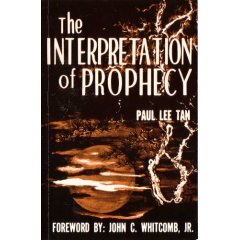
Note: This is a rant on this article from Reuters.
The idiom, “the world is your oyster,” has apparently taken on a new meaning according to a marine biologist turned bishop. With a doctorate degree in squid and oyster biology, the learned Dr Katharine Jefferts Schori – who is currently the bishop of the Diocese of Nevada in the U.S. Episcopal Church – elucidates her view of same-sex relations, “I don't believe [that homosexuality is sin]. I believe that God creates us with different gifts. Each one of us comes into this world with a different collection of things that challenge us and things that give us joy and allow us to bless the world around us.”
Although we do not know if there were any previous transference or counter-transference between Schori and oyster during her research years, we do know that the immense insights provided by oyster biology has ostensibly revolutionized human sexuality, not mentioning Christian ethics and theology in the U.S. Episcopal Church. Biologists understand that the European oyster and the Olympia oyster of the American Pacific Coast are hermaphrodites. These bivalve mollusks, in contrast to heterosexual humans, are able to play the role of father and mother simultaneously.
Not to be intimidated by these tiny Ostrea edulis, Schori has declared that it is not immoral for the man, or the woman, to play father and mother – all at the same time. According to Schori, the loving father of one family can likewise be the loving mother of another – and this is a gift from God to bless “the world around us.” I wonder if the Singaporean government agrees with her observations, given the declining birth rate and increasing number of divorces. Nevertheless, who would deny the good bishop this wonderful “gift” for her own family?
“God creates us with different gifts,” Schori firmly reassures the laity who have no prior knowledge of oyster physiology. Some men and women are gifted to act like humans, while others are predisposed to act like monkeys or oysters. “Each one of us comes into this world with a different collection of things” so as to “bless the world around us.” Some come “into this world” with a pair of shells, some with a preference for similar anatomical structures, and some even have pearls in their mouths. But all these gifts, according to bishop Schori, are to bless the world around us. The pearl oyster is arguably one of God’s most beautiful gifts to mankind. But the human with the sexual preference of oysters is not even allowed into the nation of Israel (Deuteronomy 23:17). Perhaps, the ultimate “blessing” for Schori would be to see her very own children emulating her philosophy of human sexuality, and practicing it in the homophile world.
Equipped with intimate details of mollusks, Schori continues, “Some people come into this world with affections ordered toward other people of the same gender and some people come into this world with affections directed at people of the other gender.” Following her line of thought, it is no wonder that some “come into this world with affections ordered toward other” species as well, be it mammals, nematodes or bivalves. For Schori and all who agree with her, the world is your oyster, metaphorically. For there is no lack of men today who are “gifted” with affections “ordered toward” other men.
While Yahweh destroyed Sodom and Gomorrah in the Old Testament for their decadence and immorality, Schori gives us new revelation that God has changed His mind about sodomy. Schori does not perceive homosexuality and lesbianism as abominable sins condemned by the Bible. She argues, “The Bible has a great deal to teach us about how to live as human beings. The Bible does not have so much to teach us about what sorts of food to eat, what sorts of clothes to wear - there are rules in the Bible about those that we don’t observe today.” It seems that, according to Schori, making a choice between chilli crabs and caviar for lunch is the same as choosing either a man or woman as a spouse.
Contrary to the exciting claims of Bishop (Dr) Schori, the Apostle Paul warned, “Do you not know that the unrighteous will not inherit the kingdom of God? Do not be deceived. Neither fornicators, nor idolaters, nor adulterers, nor homosexuals, nor sodomites, nor thieves, nor covetous, nor drunkards, nor revilers, nor extortioners will inherit the kingdom of God (1 Corinthians 6:9-10).” The purported “gifts” of Schori come under the category of sin in the Bible, and God calls these “gifts” an “abomination” and “confusion” (Leviticus 18:22-24). Whereas Schori proclaims that “the great message of Jesus” is “to include the unincluded,” this inclusion without the preaching of repentance is condemned as a false gospel (Galatians 1:8-9).
Paul cautioned, “Beware lest any man spoil you through philosophy and vain deceit, after the tradition of men, after the rudiments of the world, and not after Christ (Colossians 2:8).” If Schori’s philosophy is correct, then the Apostle had erred (cf. Romans 1:24-32).
This wicked world is indeed the sinner’s oyster, but such “vile passions (Romans 1:26)” should be relegated to the world of oyster sexuality and reproduction.










